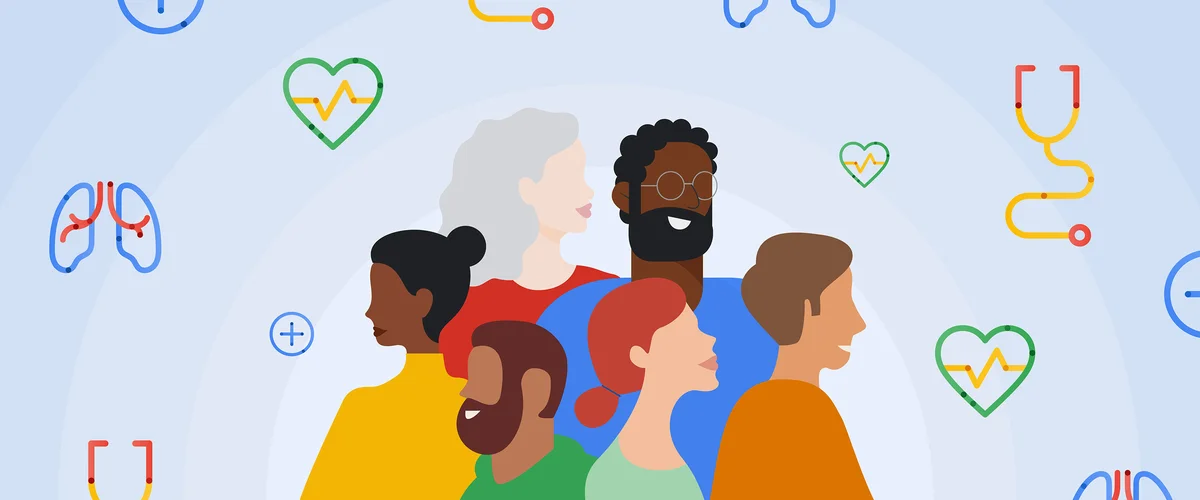In today’s rapidly evolving digital landscape, the integration of artificial intelligence (AI) into the internet has become a defining feature of our lives. This AI-driven internet brings about numerous conveniences and innovations, yet there is a growing concern about its potential impact on our mental health. As we navigate this emerging era, it’s crucial to recognize the challenges posed by the constant connectivity, information overload, and ever-expanding reach of AI algorithms.
In a world where AI influences everything from our social interactions to our job prospects, it’s essential to equip ourselves with the tools and mindset necessary to maintain a healthy mental balance.
By understanding the challenges posed by the AI-driven internet and implementing thoughtful strategies, we can embrace the benefits of technology while preserving our mental and emotional resilience. Let’s embark on this journey together, exploring the intersection of mental health and the evolving digital landscape.
Table of Contents
Understanding the AI-driven Internet
To make sense of the AI-driven internet, let’s break it down into simpler terms. Artificial intelligence, or AI, is like a smart friend for our computers. It helps them learn, understand, and make decisions, much like we do. Imagine this smart friend getting integrated into the internet, which is like a vast space where we connect, share, and find information.
So, in this tech-savvy era, AI and the internet join forces to make things faster and more efficient. Think about the personalized recommendations you get on streaming platforms or the smart suggestions your phone makes – that’s AI at work. It’s like having a virtual assistant, making your online experience tailored just for you.
Now, let’s consider everyday examples. When you search for something on the internet, AI algorithms analyze your preferences to show you the most relevant results. Social media platforms use AI to understand what posts you might like or who you might want to connect with. It’s like having a helpful guide, always learning from your actions to enhance your digital journey.
This integration of AI into the internet is shaping the way we live, work, and interact online. While it brings numerous benefits, such as convenience and personalization, it also raises questions about how much we want AI to know about us and how it affects our daily lives. Understanding this connection is key to navigating the AI-driven internet consciously and ensuring it works for us, not against us.
In essence, the AI-driven internet is like a digital companion, making our online experiences smoother and more tailored. However, as we delve deeper, we must also consider the potential impact on our mental well-being and find ways to strike a balance in this evolving digital landscape.
Mental Health Challenges
As we explore the AI-driven internet, it’s important to shine a light on the challenges it might pose to our mental well-being. One big challenge is something we’re all familiar with: information overload. Picture this – you’re bombarded with tons of messages, updates, and news every time you go online. It can be a bit like trying to take a sip from a fire hose – overwhelming!
Another hurdle comes in the form of social interactions. While the internet connects us, spending too much time online can sometimes make us feel a bit lonely. Real connections with friends and family might take a back seat, and we end up chatting more with screens than with people. Striking a balance here is key to keeping our social lives vibrant and meaningful.
Privacy is another concern. AI learns from our online behaviors to tailor our experiences, but it also raises questions about how much of our lives are being watched and analyzed. This constant scrutiny can lead to feelings of unease and anxiety about our personal space.
And then there’s the worry about jobs. With AI making things smarter and more automated, some people fear that their jobs might be taken over by machines. This uncertainty about the future can be stressful and affect our mental health.
Understanding and addressing these challenges is vital. It’s like putting on a mental health superhero cape to navigate the digital world wisely. By being aware of information overload, fostering real connections, safeguarding our privacy, and adapting to changes, we can create a healthier relationship with the AI-driven internet.
In the next sections, we’ll dive into strategies that act as shields against these challenges, helping us maintain robust mental well-being in this ever-evolving digital realm.
Strategies for Mental Health Protection
Now that we’ve uncovered some challenges, let’s talk about practical ways to protect our mental well-being in the AI-driven internet era. It’s like having a toolkit for our minds—simple yet effective strategies to navigate the digital landscape with resilience.
Mindful Technology Use
Imagine technology as a helpful tool, not a constant companion. Setting digital boundaries is like creating a fence around our online time. Designate specific periods for digital activities, allowing room for other aspects of life. It’s about balance – a bit like juggling, making sure no aspect drops.
Managing screen time is crucial. Think of it as a diet for your eyes and mind. Too much screen time can be like having too many sweets, which is not great for your health. Set limits on how much time you spend online each day, and use that time wisely. This not only protects your eyes but also gives your brain a chance to relax and recharge.

Cultivating Real-world Connections
In the world of screens, let’s not forget the magic of real-world connections. Balancing online and offline social interactions is like tending to two gardens – the digital and the physical. Make time for face-to-face interactions with friends and family. It’s these moments that add color to our lives.
Fostering meaningful relationships is like planting seeds. Invest time and energy in building connections that go beyond likes and comments. Engage in activities that allow for genuine, heartfelt conversations. These connections act as a shield against the loneliness that prolonged screen time can sometimes bring.
Privacy and Security Practices
Guarding your personal information is like protecting your home. Safeguarding passwords, being cautious about the data you share, and understanding privacy settings are essential. It’s about creating a safe space in the digital realm.
Being mindful of AI algorithms is like knowing the ingredients in your food. Understand how AI uses your data to tailor experiences. This awareness empowers you to make informed choices about what you share online, minimizing the feeling of being constantly watched.

Continuous Learning and Adaptation
Just like learning new skills in real life, adapting to the digital world is vital. Upskilling for the AI-driven job market is like adding more tools to your professional toolkit. Stay curious, explore new technologies, and enhance your skills to stay relevant in the evolving job landscape.
Embracing a growth mindset is like having a flexible branch that bends but doesn’t break. View challenges as opportunities to learn and grow. The digital world is always changing, and adapting with a positive mindset ensures you stay resilient in the face of uncertainties.
These strategies form the backbone of our mental health toolkit in the AI-driven internet age. It’s about being intentional in our digital interactions, nurturing real connections, protecting our privacy, and embracing a mindset that values continuous learning and growth.
As we weave these strategies into our daily lives, we build a strong foundation for mental well-being in the midst of technological advancements.
Building a Supportive Environment
Creating a supportive environment involves not just personal efforts but also the collective responsibility of corporations and governments. Think of it as teamwork – everyone playing their part to ensure a healthier digital space.
Corporate Responsibility
Imagine your workplace as a garden where your mental health grows. Many companies are realizing the importance of employee well-being. Employee mental health programs are like sunshine and water for that garden. These programs offer support, resources, and a listening ear, acknowledging that a healthy workforce is a productive one.
Ethical AI development practices are like planting seeds of responsibility. Companies play a role in ensuring that the AI they use or develop considers its impact on mental health. Responsible AI means creating tools that enhance our lives without causing unnecessary stress or harm.
Government Policies for Mental Health
Now, think of governments as guardians of the digital realm. They have a role in shaping policies that safeguard mental health in the AI era. Addressing AI’s impact on employment and mental health is like tending to the roots of a tree – ensuring stability for the entire ecosystem.
Ensuring fair and transparent AI practices is like making sure everyone plays by the same rules. Governments can establish guidelines that promote ethical AI use, protecting individuals from unfair practices. These regulations act as a safety net, providing a sense of security in the ever-changing digital landscape.
By fostering a collaborative approach between individuals, corporations, and governments, we can create a digital environment that prioritizes mental well-being. It’s a shared responsibility – individuals taking steps to protect themselves, companies nurturing a supportive workplace culture, and governments establishing guidelines to ensure a fair and balanced digital ecosystem. Together, we build a foundation where the benefits of the AI-driven internet can be harnessed without compromising our mental health.
Embrace the Positive Aspects
While we discuss the challenges, it’s equally important to recognize the positive side of AI. Think of it as finding the silver lining in a cloud. AI-driven innovations in mental health are like a helping hand during tough times. There are AI tools designed to support mental well-being, offering personalized resources and assistance.
Picture AI as a friendly guide on your well-being journey. Some applications use AI to provide stress-reducing exercises, mindfulness tips, and even personalized recommendations for a healthier lifestyle. It’s like having a digital companion cheering you on towards a more balanced and resilient state of mind.
Additionally, AI contributes to advancements in medical research, leading to a better understanding and treatment of mental health conditions. It’s like a beacon of hope, driving progress towards a future where mental health challenges are more effectively addressed.
Embracing the positive aspects of AI is about seeing it as an ally in our well-being rather than just a potential source of stress. By leveraging the benefits of AI, we can enhance our mental health journey and work towards a harmonious coexistence with the evolving digital landscape.
Mindful Tech
In this digital adventure, we’ve explored the challenges and strategies for navigating the AI-driven internet while safeguarding our mental well-being. It’s like a journey where we equip ourselves with tools – setting boundaries, fostering connections, and staying curious. Remember, technology is a tool, and how we use it shapes our experience.
By embracing the positive aspects of AI, building a supportive environment, and taking collective responsibility, we pave the way for a harmonious relationship between technology and our mental health. Let’s step into the future with mindfulness, resilience, and a shared commitment to a balanced digital world.
Discover how our digital marketing agency navigates the dynamic intersection of technology and well-being, ensuring a harmonious digital experience. Foster a balanced online presence and explore the positive impact of AI with EvolveDash as we tailor strategies for success.
For more similar blogs, visit EvolveDash today!
FAQs
- How does AI impact sleep patterns and mental health?
AI-driven content and recommendation algorithms can keep users engaged for long periods, leading to disrupted sleep cycles. Overuse of social media, streaming services, and online platforms can contribute to sleep deprivation, negatively affecting mental well-being.
- Can AI be used to improve mental health instead of harming it?
Yes, AI is being used in mental health support apps, therapy chatbots, and stress management tools. Platforms like Woebot and Wysa use AI to provide emotional support, mindfulness exercises, and coping strategies.
- What role do social media algorithms play in anxiety and depression?
AI-powered social media algorithms curate content based on user behavior, sometimes promoting negative comparisons, doomscrolling, or addictive engagement patterns. This can lead to increased anxiety, low self-esteem, and mental fatigue.
- How can individuals take control of their online experience in an AI-driven world?
Users can take control by adjusting privacy settings, curating content preferences, using AI-based mental health tools, and setting screen-time limits. Practicing digital detox and mindful browsing also helps in maintaining a balanced relationship with technology.
- What are the ethical concerns around AI and mental health?
AI raises ethical concerns such as data privacy, misinformation, and algorithmic bias. AI-driven mental health tools must prioritize user confidentiality, avoid reinforcing harmful behaviors, and ensure accessibility without replacing professional mental health care.


















